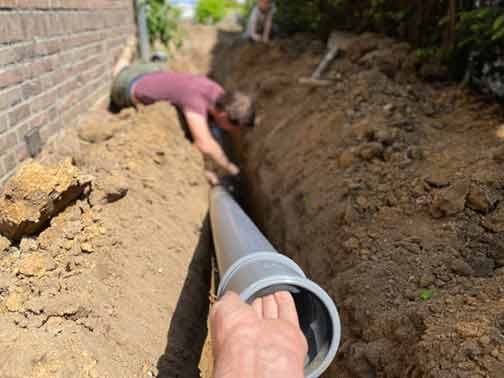
As a homeowner, it’s easy to overlook the importance of maintaining your sewer line. However, neglecting to properly care for your sewer line can result in costly repairs and significant health hazards. Here we’ll discuss the ins and outs of sewer line maintenance, including how to spot troubles and prevent expensive repairs.
What is a Sewer Line?
A sewer line is a crucial component of your home’s plumbing system that carries wastewater from your house to the main sewer system. The sewer line is responsible for removing sewage and waste from your home and disposing of it safely. If your sewer line becomes clogged or damaged, it can cause a variety of problems for your home and your family’s health.
Why is Sewer Line Maintenance Important?
Sewer line maintenance is vital for a variety of reasons. Neglecting to maintain your sewer line can result in the following problems:
- Clogs: Just like the drains in your home, the sewer line can become clogged with debris, grease, and other materials. A clogged sewer line can cause sewage to back up into your home, resulting in a nasty and hazardous mess.
- Tree Roots: Tree roots are a common cause of sewer line damage. If your sewer line runs near or under trees, the roots can invade and damage the line, causing cracks and leaks.
- Damage: Over time, your sewer line can become damaged due to age, wear and tear, and other factors. A damaged sewer line can lead to leaks and sewage backups, resulting in costly repairs and significant health hazards.
How to Spot Sewer Line Problems
It’s essential to keep an eye out for signs of sewer line problems to catch them early. Here are some of the most common signs that you may have sewer line problems:
- Slow Drains: If you have slow drains throughout your home, it may indicate that you have a clogged sewer line.
- Bad Smells: Foul odors coming from your drains or yard can indicate that you have a sewer line problem.
- Backups: If sewage is backing up into your home, it’s a sure sign that you have a sewer line clog or other issue.
- Water Pooling: If you notice water pooling in your yard or basement, it may indicate a leak or crack in your sewer line.
If you notice any of these signs, it’s essential to contact a professional plumber immediately to assess the situation and prevent further damage.
Sewer Line Maintenance Tips
The good news is that there are several steps you can take to prevent sewer line problems and keep your system running smoothly. Here are some top sewer line maintenance tips:
- Be Careful What You Flush: Never flush items down your toilet that aren’t intended for the sewer system, such as baby wipes, feminine hygiene products, or paper towels. These items can cause significant clogs and backups.
- Use Enzyme Cleaners: Enzyme cleaners can help break down organic material in your sewer line, reducing the likelihood of clogs and backups.
- Plant Wisely: If you’re planting trees or shrubs in your yard, be mindful of where you’re planting them in relation to your sewer line. Avoid planting trees with aggressive root systems near your sewer line to prevent damage.
- Schedule Regular Sewer Line Inspections: A professional plumber can camera inspect your sewer line regularly to catch any problems before they become major issues.

When to Call a Professional
If you notice signs of sewer line problems or suspect you need a repair of your sewer line, it’s essential to contact a local plumber near you as soon as possible. A licensed plumber can assess the situation, diagnose the problem, and provide a solution to prevent further damage.
The Bottom Line
Maintaining your sewer line is essential for the health and safety of your family and your home. By following these tips and being mindful of signs of trouble, you can prevent costly repairs and keep your sewer line running smoothly. If you do need professional assistance, don’t hesitate to contact a licensed plumber to keep your system in top shape.

